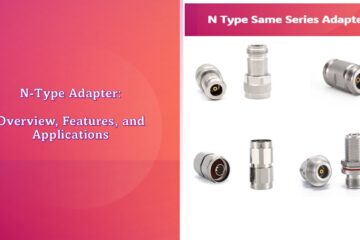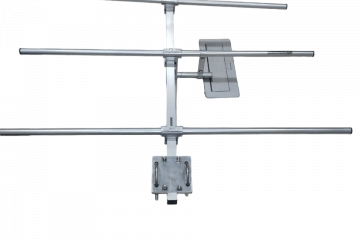A BNC (Bayonet Neill–Concelman) adaptor is a widely used RF (Radio Frequency) connector accessory that helps in joining two compatible BNC interfaces or transitioning from a BNC interface to another type of connector. It plays a crucial role in the transmission of audio, video, and RF signals, ensuring secure, quick, and reliable connectivity in a wide range of electronic and telecommunication systems. The bayonet-style locking mechanism makes the BNC adapter easy to use while maintaining a stable and low-loss connection.
Design and Construction
BNC adaptors are compact, cylindrical components designed with precision to maintain proper impedance matching and reduce signal loss. They are typically constructed from brass or nickel-plated materials, which provide both durability and excellent conductivity. Many BNC adaptors are gold-plated at the contact points to minimize corrosion and ensure long-term reliability. The bayonet coupling system provides a simple push-and-twist mechanism that locks the connector securely in place, preventing accidental disconnection.
BNC adaptors are available in both 50-ohm and 75-ohm versions. The 50-ohm type is commonly used in data, RF, and wireless communication applications, while the 75-ohm type is widely used in video, broadcast, and CCTV systems. Choosing the correct impedance adapter is essential to maintain signal quality and prevent reflection or attenuation.
Types of BNC Adapters
There are several variations of BNC adaptors, designed for different connection needs:
- BNC Male to BNC Female Adaptor—used for extending cable lengths or converting gender.
- BNC Male to BNC Male Adaptor – connects two BNC female cables or devices directly.
- BNC Female to BNC Female Adaptor—works as a coupler between two BNC male connectors.
- BNC to RCA Adaptor – allows interfacing between BNC-based professional equipment and consumer-grade RCA connections.
- BNC to SMA/N-Type Adaptors—widely used in RF and wireless testing setups for cross-connector compatibility.
This variety makes BNC adapters extremely versatile in both professional and consumer electronic environments.
Applications for BNC Adapters
BNC adaptors are highly valued for their adaptability and reliability. Some common application areas include:
- Broadcasting and CCTV Surveillance: In video transmission systems, BNC adaptors are frequently used to connect cameras, monitors, and DVRs.
- Telecommunications and Networking: They serve as essential components in testing, monitoring, and troubleshooting coaxial connections.
- Test and Measurement Equipment: Oscilloscopes, signal generators, and spectrum analyzers often rely on BNC connections, where adaptors are used for extending compatibility.
- Military and Aerospace: Due to their secure locking system, BNC adaptors are trusted in mission-critical communication equipment.
- Audio and Video Systems: Professional AV setups use BNC adaptors to maintain high-quality signal transmission.
Advantages of BNC Adapters
- Quick and secure locking system with bayonet coupling.
- Reliable performance at both low and high frequencies.
- Wide range of configurations for various connection requirements.
- Compact design and long service life.
- Cost-effective solution for extending or adapting connectors.
Conclusion
The BNC adaptor is an essential component for anyone working with coaxial-based systems, whether in video production, broadcasting, telecommunications, or laboratory testing. Its robust construction, easy-to-use design, and compatibility with multiple connector types make it a trusted solution for ensuring reliable signal transmission. Choosing the right type of BNC adaptor, based on impedance and application, helps maintain signal integrity and ensures smooth operation across a wide range of professional and industrial environments.



3 Comments
Internet_kyki · 24/02/2026 at 8:43 pm
Вы сможете подобрать и традиционные, и современные ковры на любой вкус.
Лучшие ковры дешево
Такой выбор помогает подобрать ковёр под любые требования покупателей.
Kazino_beKl · 25/02/2026 at 2:25 pm
Большой выбор слотов и живых игр приятно удивил https://envioconfiablesevilla.com
Vodka_kkKr · 25/02/2026 at 2:32 pm
Отличная площадка для игры в vodka казино с быстрыми выплатами https://allos.org.br